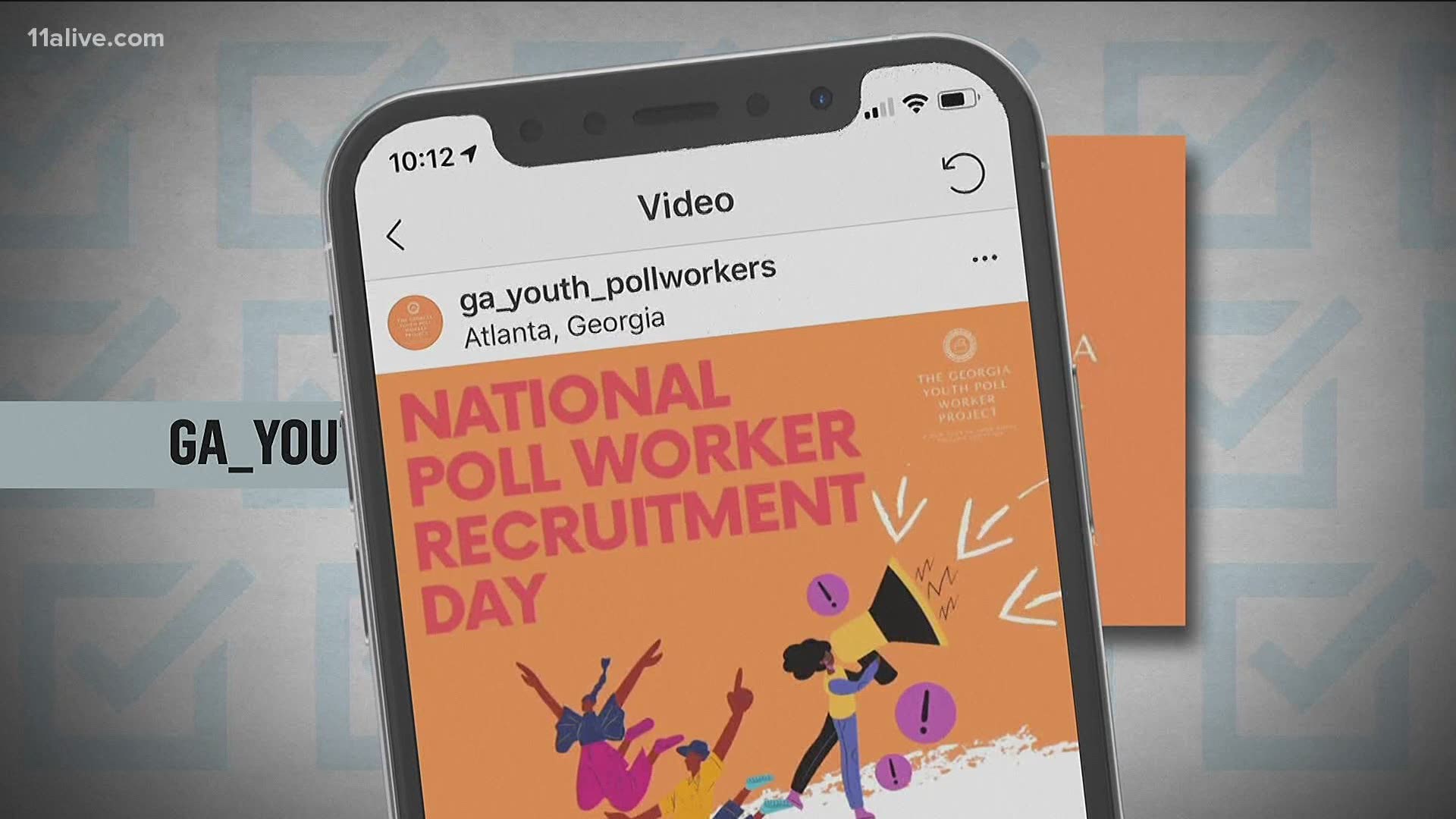ATLANTA — With a presidential election unlike any before it looming in November, Georgia counties are still trying to build a poll worker force that will need to skew much younger than usual.
With recruiting efforts taking place on platforms where it ordinarily doesn't - such as Instagram - officials and get-out-the-vote activists are hoping young people will respond to the call.
If you're interested, here's how the process generally works:
First, if you're wondering, you do get paid as a poll worker. The rate of pay depends on your county, so it's best to check with your county registrar, which you can find contact info here at the Georgia Secretary of State's site.
In Gwinnett County, for instance, a poll manager will make $225 on Election Day (and $300 if they complete certain training.) In Carroll County, it's $210. Clerks can make between $120-145 for the day in Gwinnett, and $140 in Carroll.
It's important to note, also, that you do not generally get paid as a poll watcher, an important distinction. If you're interested in volunteering as a poll watcher, there is more information about that available here.)
So what else is involved?
Qualifications
The qualifications are outlined this way in official Georgia law, but the short of it is you have to be at least 16 years old, hold U.S citizenship, reside in the county you want to work in, and be able to read, write and speak English.
If you're running for office or already hold public office, you're ineligible. And if you're a close relative of someone running for office you cant work anywhere their name will appear on the ballot. Here's some more on how that works.
Applying
If you qualify and want to go for it, applying will again depend on the county. In Fulton County, for instance, there's a readily accessible online application. For Gwinnett, you have to go to the county government jobs site and search "poll."
In other counties - Habersham, for instance - you have to download an application and get it to the elections office in person or by mail.
Responsibilities
So if this all works out, what do you actually have to do?
First, most poll workers will usually have to undergo training, usually through completing a brief online course.
Then in the most basic operational roles, responsibilities can include helping set up a polling place before the election, helping voters check in and issuing ballots, and helping pack up when the polls close. It can also involve any number of small tasks that polling managers might ask of you.
You do have to be around all day: As Carroll County puts it: "Yes, you have to work all day! Poll workers must be sworn in at the beginning of each Election Day. Once you have been sworn in at the polling place, you are not allowed to leave until all Election Day activities have been completed. If a poll worker must leave during the Election Day due to illness or emergency, their pay will be prorated to the number of hours worked."
Be warned - you will not be given time to vote. Poll workers are required to vote before Election Day.
If you're interested in reading further, you can download the Georgia Poll Worker Training Manual here from the secretary of state's website.
And for some useful things you cannot do as a poll worker, the secretary of state's office has this video available.
Poll workers are an essential part of keeping things running on Election Day. Normally they tend to be older and have free time to volunteer, but with concerns over COVID-19, elections officials really need young people to turn out this year.
Again, if you're interested, you can find your county's elections office here.
MORE HEADLINES

